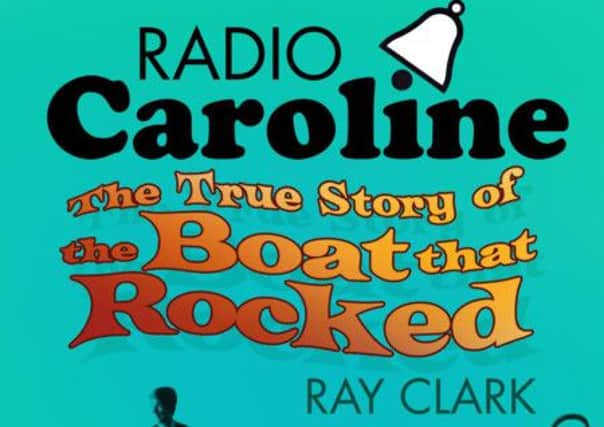Book review: Radio Caroline: The True Story of the Boat that Rocked by Ray Clark


Postmaster General at the time, a politician in Harold Wilson’s Labour Government, he was responsible for the Marine Offences Act which finally sank the bulk of those floating broadcasters back in 1967’s summer of love.
An avid, loyal teenage listener of Radio Caroline, I cannot be alone in wondering now whether we would have today’s wall-to-wall, 24-hour music for all tastes – on DAB, FM, AM - or even the internet (on which the present-day Caroline broadcasts) – if events had taken a different turn.
Advertisement
Hide AdAdvertisement
Hide AdCaroline’s pioneer pirates started spinning the turntables on Easter Sunday 1964 – the first of the British offshore radio stations – just two years after the Pilkington Committee, set up to consider the future of UK broadcasting, concluded that there was ‘no need or desire for commercial radio in Britain.’
Instead, listeners of the BBC’s ‘popular music’ station, the Light Programme, were force fed a daytime diet of restricted needletime and some fairly bland showband outpourings, courtesy of the Musicians’ Union stranglehold.
It was the work of the pirates which brought to wider attention a whole raft of new groups and performers although, as the book reveals, record companies were often asked to pay for the privilege of having those sounds played.
Ray Clark’s book does not set out to glorify the DJs, station owners or the ‘respected city moneymen’ who financed operations at Caroline or any number of other rival stations of varying quality and success.
Advertisement
Hide AdAdvertisement
Hide AdNor does it come down too hard on Tony Benn, highlighting, for instance, how the trial for the murder of Radio City owner Reg Calvert exposed the seedier side of pirate radio, in turn helping to force the Government’s hand into legislating against the offshore stations.
The bulk of the pages are taken up with interviews and quotes gleaned over the last 50 years, some specifically for the book, others from a range of sources as diverse as Hansard and the Essex Police Museum to The Guardian and the National Archive.
Clark can see (and no doubt hear) both sides of the picture, having been a Radio Caroline disc jockey and currently a local radio breakfast show presenter on BBC Essex.
And in an interview with Clark, Tony Benn, who died in March, admits of Caroline: ‘I’ve never denied it was a very popular station, that was never the problem. As far as I was concerned the problem was how they were stealing the copyrights and interfering with other stations, that was the only problem, nothing whatever to do with the output of the station, which was very enjoyable.’
(The History Press, paperback, £16.99)